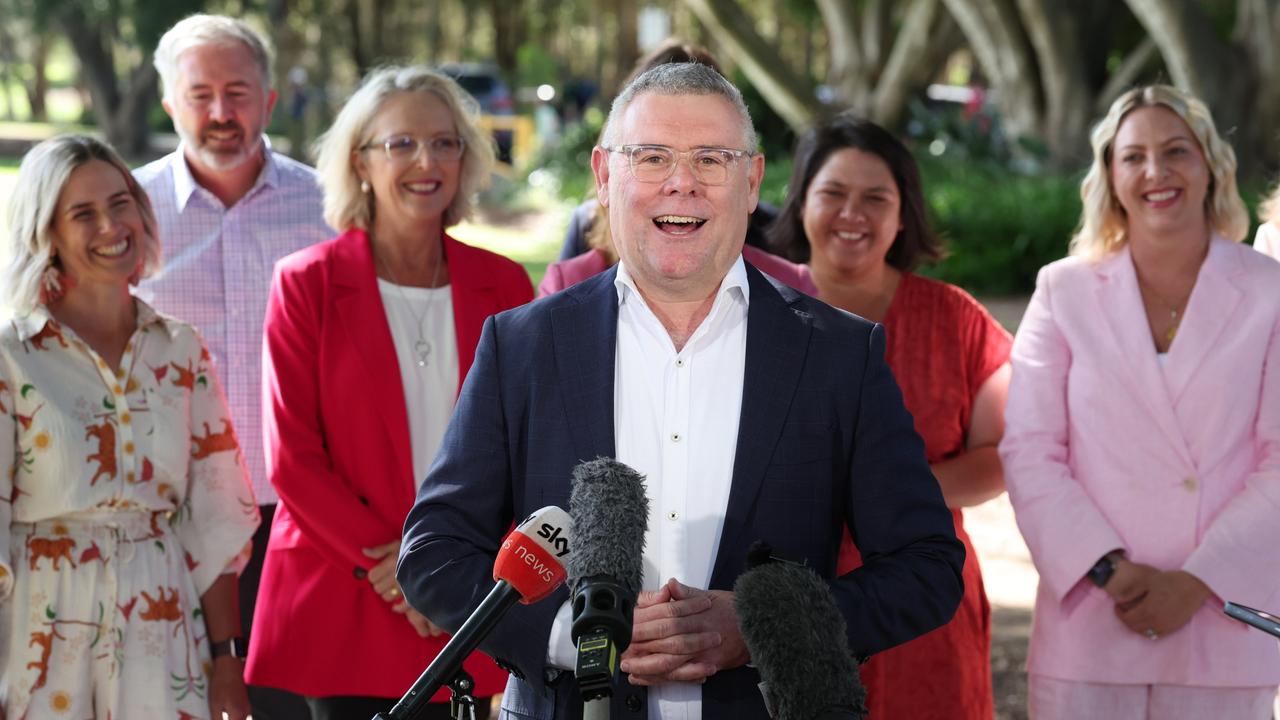Charles Wooley: I’d be interested if Tassie had a footy team ... but not at this price
Tasmania deserves better from the AFL than this petty, penny-pinching discrimination that we’ve suffered for years, writes Charles Wooley.
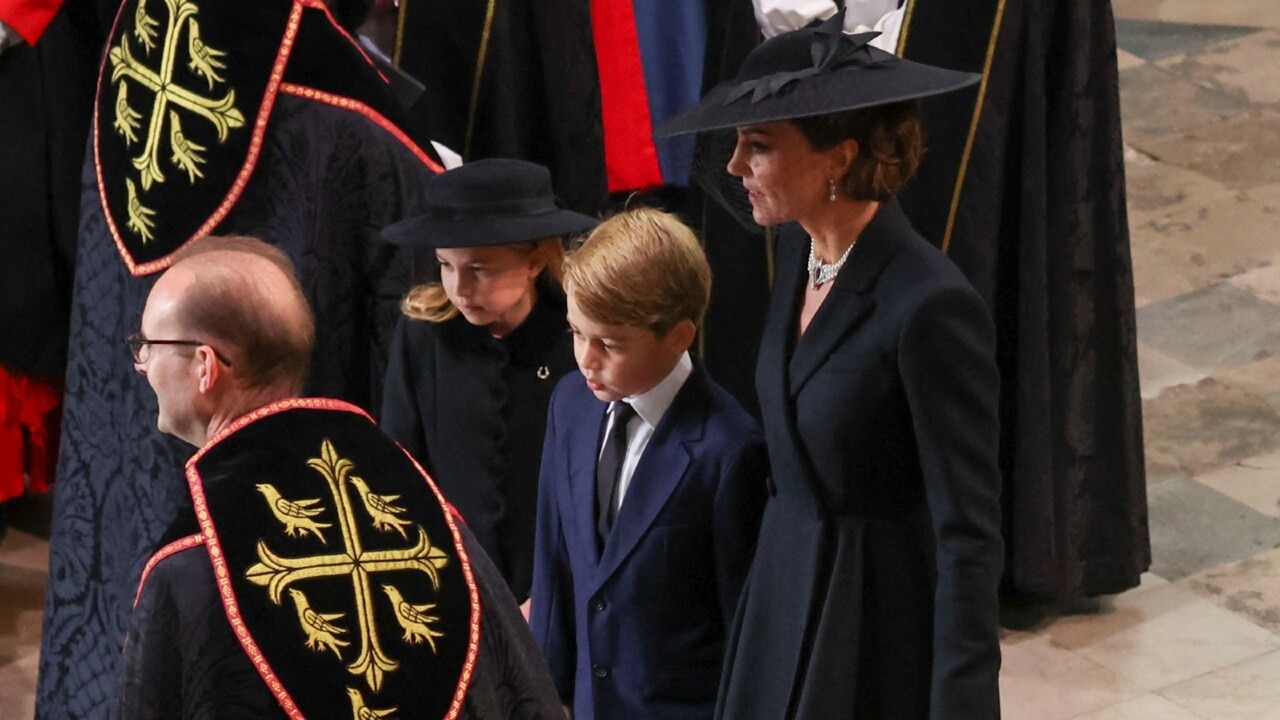
Opinion
Don't miss out on the headlines from Opinion. Followed categories will be added to My News.
AT last, a clear difference of policy.
“Do you realise how out of touch you sound to Tasmanians when you say your priority is spending $750m on a stadium in Hobart?”
Opposition Leader Rebecca White put that to Premier Jeremy Rockliff during parliamentary question time this week.
Astutely she referred to a health crisis, a cost-of-living crisis and a housing crisis, but not, she said, a “lack of stadiums crisis”.
Brilliantly the premier riposted that the government “can walk and chew gum at the same time”.
And that was as good as it got. But at least it’s a policy difference.
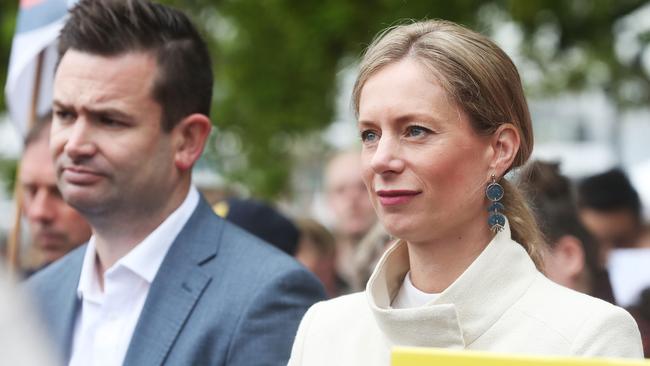
Don’t you feel sorry for the scribes who have to sit through this stuff so that you don’t have to? They are obliged to write it up in some manner interesting enough that you don’t just flick through to the back pages for matters more exciting, like a change of coach at Lauderdale.
I don’t follow footy unless there’s a bet on, or locally if my boy Freddy is playing for Lauderdale.
I don’t really give a toss which mainland team wins. I favoured Geelong this time only because it is the closest by proximity to Tassie.
Certainly, Geelong seems to me a lot like the team we might hope to become if we had a side: “a mouse that roared”.
If you are asking, not unreasonably, whether this subject is really important, I’ve also written later about the more riveting subject of taxation reform, if you want to high-speed through this bit.
I know that Australian Rules football is the most watched and attended sport and the second most participated code in the Australian world of groin strain and concussion. But that gives me little idea whether Tasmanians really want their own (probably) billion-dollar waterfront stadium with their own brand new team.
Most footy fanatics I know are already rusted on to mainland teams handed down to them over generations. These fans might walk and chew gum, but they can’t change the flavour. Most even tell me they don’t want to.
This is only an opinion column, so no correspondence shall be entered into, but as a non-believer I thought I might be more enthusiastic about the game if we had our own team.
I have attended one grand final in Melbourne where my mates named, pictured and shamed me on social media for doing the Weekend Australian crossword during the game.
(No, it wasn’t the cryptic crossword. I’m not an intellectual snob.)
But surely, like our premier, I can do two things at once.
Right now as I write I am watching a Netflix doco on Creedence Clearwater Revival. If they put on a concert in the Mac Point stadium I would surely go. So would mainlanders. And it wouldn’t have to be just geriatric performers. Like Vancouver in Canada, Hobart would be seen as a cool and vibrant place for concert goers, and not only for rock and roll. How about opera on the Derwent? Or even Oprah?
Advocates talk about the “Mona effect” and they might be right. A colosseum on the Derwent is an idea so much less eccentric than the idea David Walsh astounded us with decades ago.
But then, of course, even more brilliantly, Mona got the job done without you paying for it.
That won’t be the case this time.
What I really resent is the $16m-plus that over five years we have been paying to North Melbourne and Hawthorn (now badly on the nose) to grace us with their sublime presence.
Jeff Kennett’s hostility to Tassie’s bid is ungrateful, disappointing and a little depressing. We might have expected better.
Consider the figures. The AFL has paid $200m over recent years to keep the Gold Coast Suns and Greater Western Sydney in the game.
And, after the $4.5bn deal they are getting for TV rights, how can they reasonably equivocate about supporting Tasmania’s bid?
In 2021, before the new affluence, the AFL gave the Brisbane Lions $22m, St Kilda $21.5m, Melbourne $19m and the Western Bulldogs $18.8m.
Hawthorn still got $12m on top of the $8.4m of your money. If you include North Melbourne, then the Tasmanian government gave the two teams more than $20m over five years.
I could go on about the $400m the AFL gave to GWS and the Gold Coast over a decade, but you are probably already mad enough about the petty penny-pinching discrimination against Tasmania.
Look, I know here at home a billion bucks is a lot, but not at the rate Tasmanian governments of both complexions squander money. Think where Marinus is taking us, or consider the laughably renamed Sustainable Timber Tasmania. Or even the small fortune wasted by dithering for years on the future of Macquarie Point.
In our state we could easily fritter away a billion bucks without a penny of it going to the sick and the homeless.
For those of you who are not interested, I promised to mention the more riveting subject of tax reform.
It’s not quite as boring as it sounds, because the federal Labor Party appears to be changing its taxation stripes to shamelessly favour the rich.
In the so-called “stage-three tax cuts”, which Albo inherited from the previous government, the richest 1 per cent of Australians will get as much benefit as the poorest
65 per cent.
The parliamentary budget office analysis found that people on incomes over $180,000 would cop a collective saving of $117.6bn in tax. People earning under $60,000 would share in just $2.7bn worth of tax cuts.
Federal politicians and surgeons will get a tax cut of $9075 a year, while those earning less than $45,000 in child care, aged care and minimum-wage jobs will get nothing because their marginal rate of taxation will be the same as someone earning $200,000.
Albo got stiffed with this in the previous parliament when Labor decided to support the government’s tax reform legislation. Now no one seems to clearly remember why, but today this sits most oddly with a PM who bangs on about growing up in a council flat with a mum on a disability pension. The younger Albo became a social radical who once described his job as “fighting Tories”.
In power compromise is always necessary and usually conflicted.
As Shakespeare said, “Uneasy is the head that wears a crown.”
Or should that read “Albo-uneasy”?
We might assume, given Labor’s natural inclinations, that this situation really cannot stand and that even while inequity is written into the pre-set stage-three tax reforms, Albo and Jim Chalmers will find other ways to skin a fat cat.
Pomp and pageantryof the royal funeral won me over
ALONG with three and a half million Australians I watched the royal funeral this week.
Well, at least parts of it. I divided my time between British pageantry and frivolous entertainment, by dipping (only during the dull parts) into a Turkish historical soapie on Netflix, about a time-travelling journalist.
It wasn’t confusing viewing because time travel was, appropriately, the common theme of both programs.
Had someone attended Queen Victoria’s funeral on February 2, 1901, and fallen down a worm hole in time to tumble into London this week they would have experienced little that was unfamiliar.
Apart from the fact that soldiers are much taller these days, and the curious canopy of mobile phones held aloft, nothing else had changed.
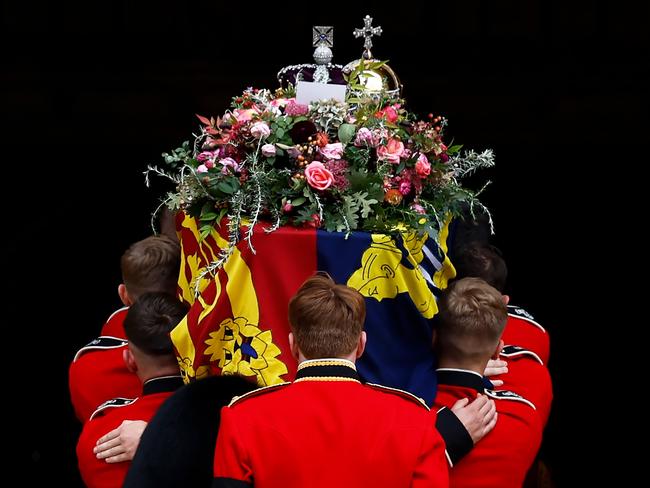
And that’s what I love about London. Yes, you can be an Australian republican (don’t worry Colonel Blimp, it might never happen) and love London. I’ve bravely eaten oysters in a tavern frequented by Samuel Johnson, only later learning that the good doctor only bought them to feed to his cat Hodge.
Reputedly Johnson drank 25 cups of tea every day, perhaps not leaving much room for a risky Thames oyster.
I’ve communed with locals and shared a beer with the ghost of that other great literary Samuel (Pepys) in a city tavern in Cheapside.
Well, so I was told.
The wonderful thing about tradition is that people make it up as they go and they go and they go. And that’s what I loved about the time I lived in London, and afterwards as a frequent visitor there.
I’ve skulked outside No.52 Tavistock Place in Bloomsbury, once the home of the writer Virginia Woolf.
She was a favourite of my mother Ella, whom I rang from the street and gushed about where I was.
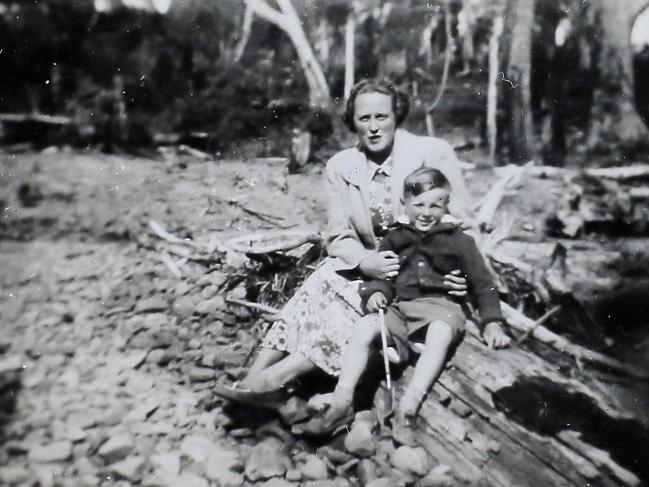
Ella was both a Scottish nationalist and an Australian republican. She said: “You really love London, don’t you son?”
When I readily agreed that this was so, she replied: “Well, I dare say that’s the Wooley in you, that’s the Sassenach in you.”
My Wooley ancestor was an army officer from Sheffield in South Yorkshire and only arrived in Scotland after the battle of Waterloo – a Jimmy-come-lately.
Ella never let my father forget that she, on the other hand, was pure unadulterated Scottish-Viking, going back nine centuries to the battle of Largs; a stoush so ferocious that the narrowly victorious Scots invited the Norse invaders to settle on the Clyde and help them with the war against England.
Stubbornly the old girl stayed alive until just short of 101. “I’m only remaining to see if Australia becomes a republic and if Scotland wins home rule,” she declared.
When both causes failed, she shuffled off.
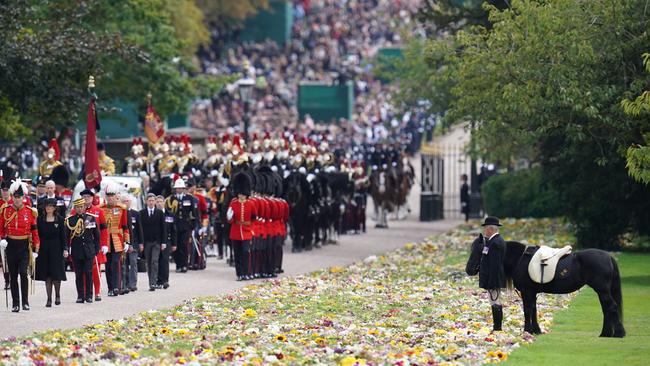
Steve Edmonds, my driver in London, was employed by 60 Minutes to take our visiting film crews around the country. He was and is a classic Londoner.
“Chorlie, I’m the lorst of the real London droivers,” he often told me. “These days it’s all Russians and Africans and even a few bloody Aussies. None of ’em know where they bleedin’ are.”
After about 50 trips to London, and often through the tunnel to Europe, we had become very good mates.
Steve liked the Queen but was sceptical about “all those bleedin’ hangers-on”. But whenever I raised the idea of Australian republicanism he would say: “Chorlie, dan’t give me that rubbish. Where d’ya think you lot got the idea for a republic? We are the bleedin’ original republicans and we cut orf a king’s head to prove it.”
He would laugh: “I reckon there are more republicans in London today than in the whole of Australia.”
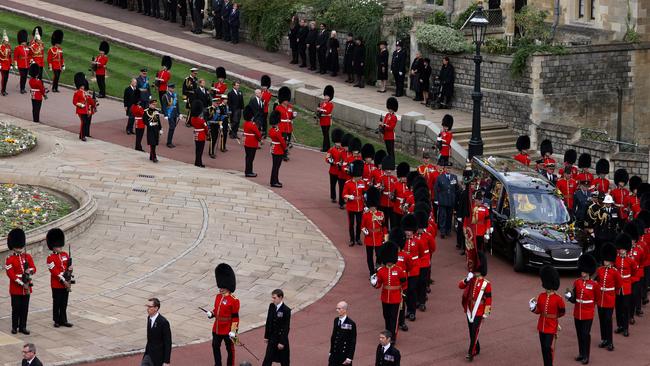
He might have been right. Even the present British prime minister, Liz Truss, was once of republican persuasion.
“Everybody should have a chance to be somebody,” she said back in 1994.
“But only one family can provide the head of state.”
She met the Queen in HM’s last days and now says nothing like that – though she might well have recanted a lot earlier to climb the slippery pole/poll to win Tory leadership.
Because I love London, I watched the royal funeral a little in the way a Francophile would watch the Tour de France; partly for the glorious geography. The procession passed through boulevards, malls, arches and parks I know so well. But geography aside, even at a 17,000km remove, of course I found it surprisingly affecting.
Part of that has to be down to the English flair for elegiacs. They do grief so well when adorned with pomp and pageantry.
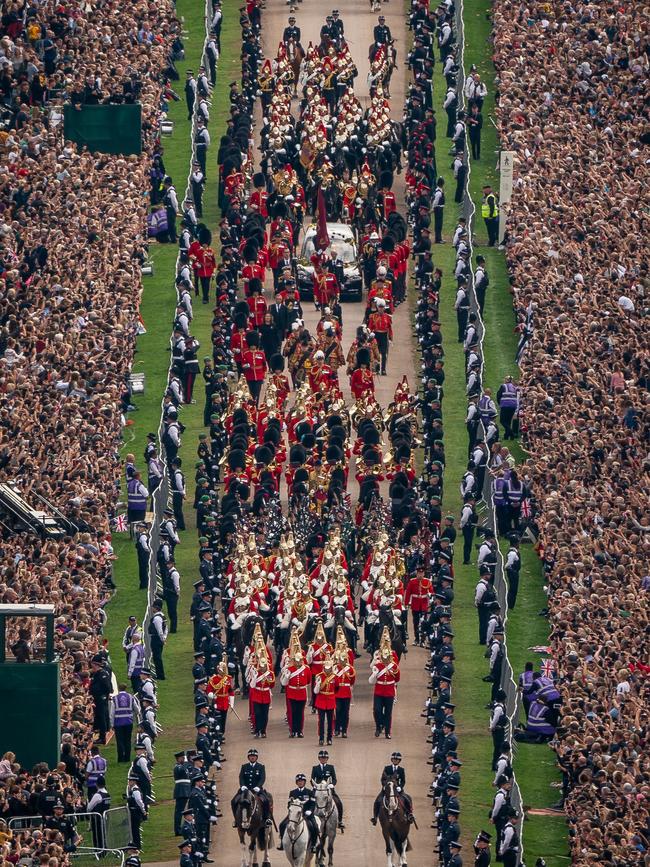
But part is also down to the fact I am a white Australian of British heritage. In last year’s census 33 per cent of us (8,385,928 people) identified as having English heritage.
Add another 10 per cent from Scotland and 9 per cent from Ireland and we have an
over-riding statistical and sentimental connection rooted in another hemisphere.
Must be confusing for the other 48 per cent of Australians who actually live here.
I watched the funeral by myself. Yet even in the crowd it looked like everyone there was alone, with their own thoughts. At least I was able to have a drink.
I found a bottle of Dubonnet Rouge, which I bought in France years ago. It was said to be the Queen’s favourite drink.
It is a horrible Parisian aperitif, a kind of port stuffed full of herbs and fruit and quite undrinkable.
Apparently, Her Maj and her mum liked it with dry gin, ice and a slice of lemon. Nothing too posh about the Windsors.
The only saving grace of that rough cocktail is that it packs a wallop. So much so, I was insensitive enough to ring my old driver mate Steve in the UK for a bit of the usual banter.
I found him alone in a cheap hotel room in Windsor watching the same television images I was viewing a hemisphere away.
He had been driving a foreign film crew and was lodged in what he called “a sixty-nicker hotel room I am paying 360 quid a night for”.
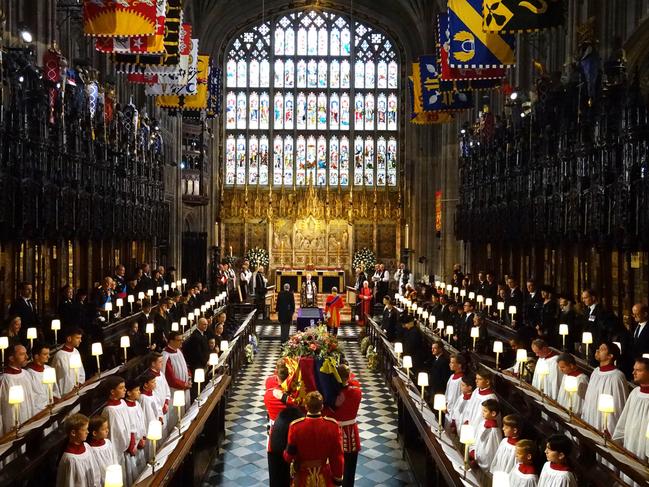
And there is explained how the Brits can spend so much money on a funeral.
Steve reported there was not a hotel vacancy nor a BnB available anywhere in Greater London.
The place was chockers.
But my old mate was uncharacteristically sad.
There was no chance of our usual cheery jousting about republicanism, so I left him to his melancholy solace and returned to my Dubonnet and gin – a horrid but salutary hooch.
Then I wrote this almost conciliatory piece.
Still in time I am sure our republic will come to pass.
But not just yet.
It looks like we might have to further dilute what my old mum Ella called “the Sassenach in you”.



